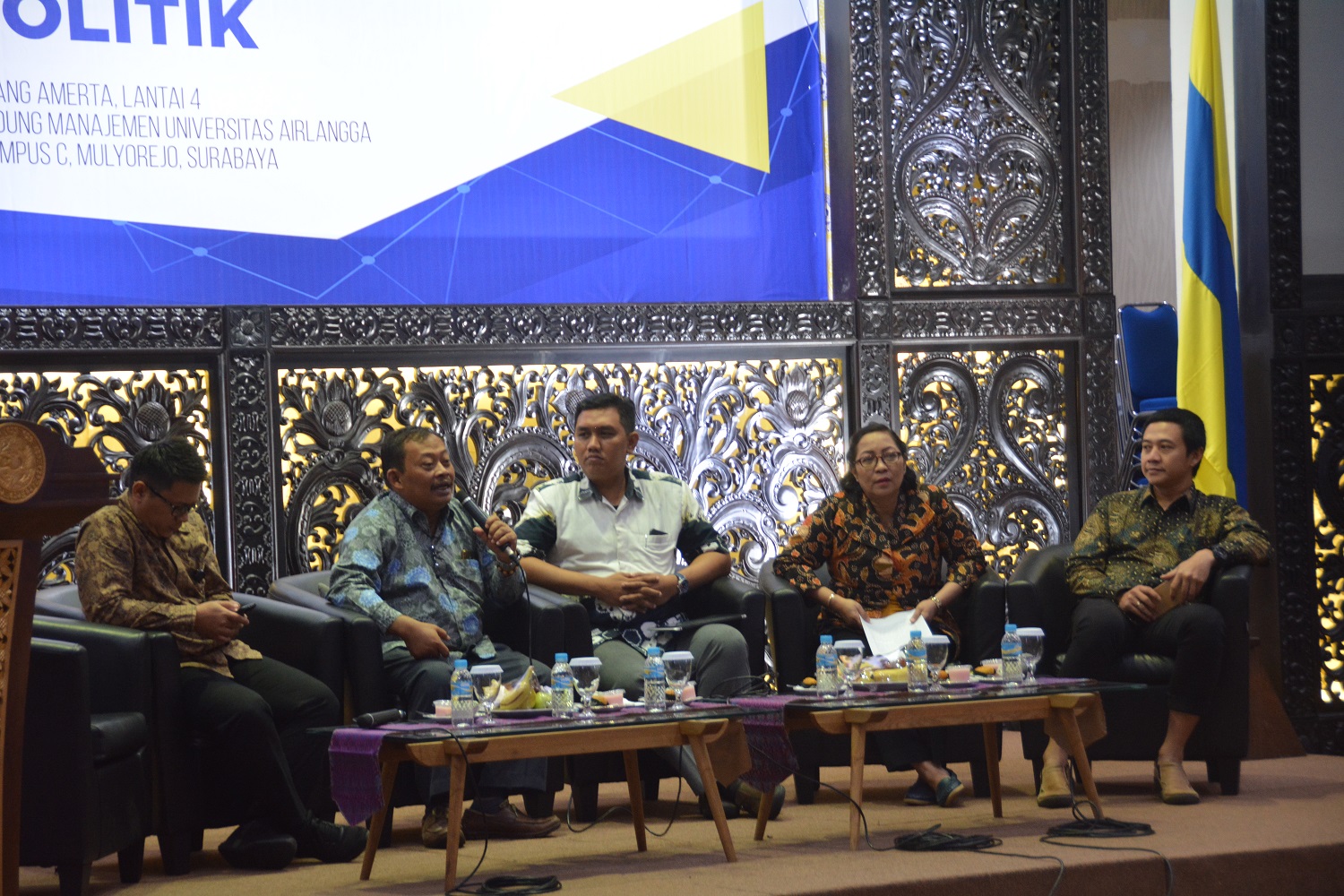UNAIR NEWS – To be able to occupy certain positions, political parties / mayors / presidents, or other candidates must spend a lot of money, from registration process, campaign, and other processes. Political parties also have to carry out regeneration, work programs, and activities that cost a lot of money.
Someone who wants to run for office without money politics already spend a lot of money. So, most political parties in Indonesia think first is how they were re-elected; and second how to return the capital spent. That is one of the reasons why officials commit corruption in carrying out their mandate.
Therefore, management and a logical system are needed to prevent corruption of officials in Indonesia.
To discuss the topic, Corruption Eradication Commission (KPK) and Universitas Airlangga to hold a public discussion on preventing corruption in political sector. The public discussion was held at Amerta Hall of Universitas Airlangga on Thursday, December 13. Public discussions were also attended by representatives of Bawaslu, KPUD, lecturers, political parties, and students.
The public discussion invited some speakers, Moch. Nurhasim S.IP., M.Sc (principal researcher at Political Research Center (P2P) Indonesian Institute of Sciences (LIPI)), Prof. Kacung Marijan (FISIP UNAIR), Taufik Rachman, Ph.D, (FH UNAIR), Dr. Dwi Windyastuti (FISIP UNAIR), and moderated by Iqbal Felisiano., S.H., LL.M.
Giri Suprapdiono, Director of Education and Community Service of KPK, delivered a speech. He said that appreciation was needed for public officials by providing logical salaries so that they could maintain integrity such as in KPK for example.
“KPK officers do not want to be made civil servants. The minimum salary of KPK investigators is 20 million. So we continue to strive to maintain integrity and professionalism, “said Giri Suprapdiono.
“Logical management is required, especially related to financial problems to manage political parties,” he added.
Meanwhile Moch. Nurhasim said there were four issues of integrity of political parties. The four issues are the absence of ethical standards, internal democratic challenges, political party funding problems, and regeneration & recruitment problems.
At the moment, KPK, LIPI, and a number of political parties agree on the implementation of SIPP (Political Party Integrity System). SIPP is a set of policies built by political parties and agreed collectively as an integrity standard that all party members must adhere to.
Nurhasim said, SIPP mandated the implementation of an integrity system that could be internalized in every political party.
“SIPP is a unit of policy agreed collectively as a standard of integrity by all members of political parties in implementing their main functions as political parties,” said Nurhasim.
There are several advantages to the implementation of SIPP such as generating prospective leaders with integrity, minimizing the risk of political corruption and abuse of power, and producing transparent and accountable financial governance.
This public discussion was closed with a conclusion by the moderator. This public discussion was held to commemorate the world Anti-Corruption Day on December 9. This year, it was themed politics. (*)
Author: Galuh Mega Kurnia
Editor: Binti Q. Masruroh





